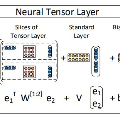The proliferation of Low Earth Orbit (LEO) satellites for universal IoT applications and the growing use of drones in emergency services, agriculture, and military operations highlight the transformative potential of non-terrestrial networks (NTN). However, these networks face two key challenges: (1) large coverage footprints that create frequent collisions and (2) moving gateways that cause dynamic links and demand synchronization-free, link-aware transmissions. Existing random access schemes such as ALOHA, CSMA, and BSMA fail in this setting, suffering from high collision rates, hidden terminals, or excessive gateway energy overhead. We propose Free Signal Multiple Access (FSMA), a gateway-controlled protocol that introduces a lightweight free signal chirp (FreeChirp). FreeChirp ensures that nodes transmit only when the channel is idle and when links are reliable, thereby reducing collisions and enabling link-aware access without the need for synchronization or complex scheduling. We evaluate FSMA using 25 commercial LoRa devices with a drone-mounted moving gateway and demonstrate up to 2x higher throughput, 2x to 5x better packet reception ratio, and 5x improved energy efficiency compared to the baselines. Large-scale simulations with a custom Satellite IoT Simulator further show that FSMA scales to 5000+ devices per satellite pass. These results establish FSMA as a practical step toward scalable, energy-efficient, and reliable NTN IoT networks.
翻译:暂无翻译




